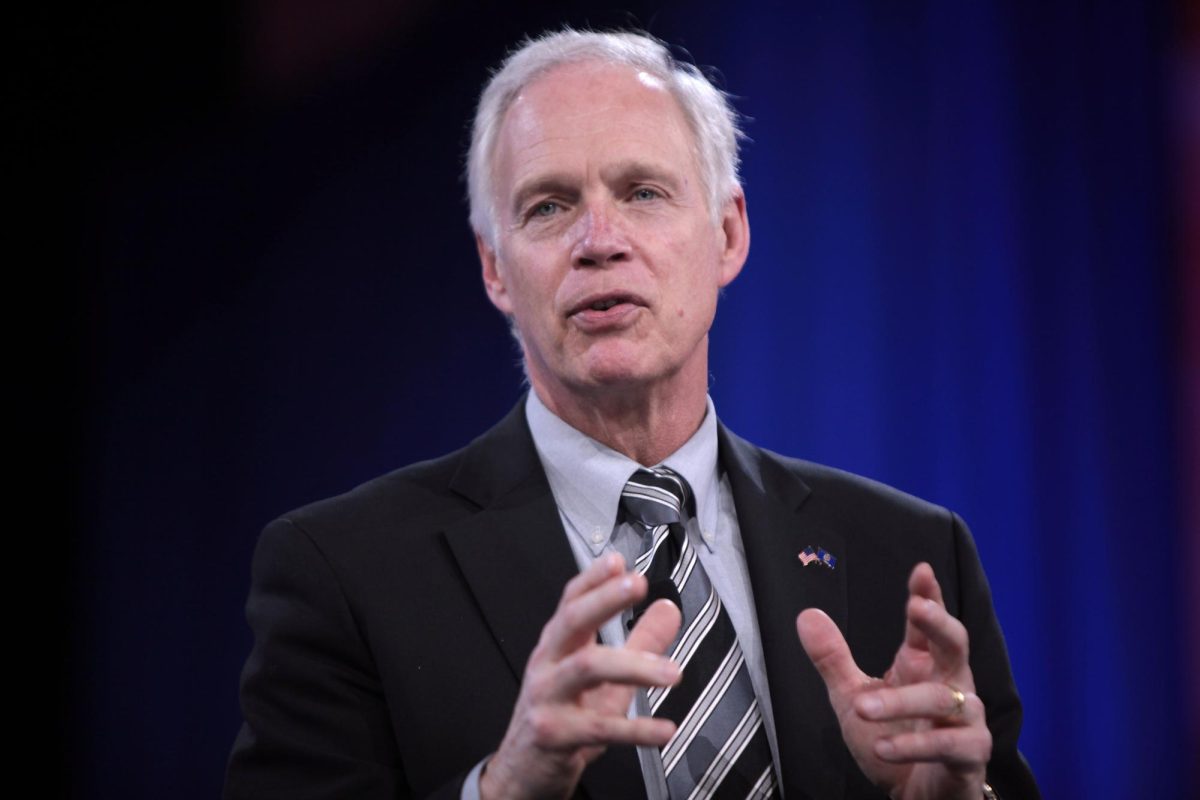
The Women’s Center, The Women’s Advocacy Council, The Sisterhood and the Social Justice Club hosted two scholarly speakers to discuss the similarities and differences between feminism and womanism at the Voice Unheard: A Conversation within Feminism and Womanism event on Nov. 3 in the Reeve Memorial Union Theatre. Beverly Guy-Sheftall is a professor of English and women’s studies at Spelman College in Atlanta, Georgia and a black feminist scholar Clenora Hudson-Weems is a professor of English at the University of Missouri. She focuses on womanism and Africana womanism, and actually coined the term “Africana womanism” in the late 1980s. Interim Director of the Women’s Center Sommer Hudson said this event is important to students because it creates awareness of the two different movements of feminism and womanism. “Specifically awareness of the ways that feminist issues don’t always fully address racial issues, so very much bringing to light the intersectionality of gender and race issues,” Hudson said. AJ Wetterau, a member of WAC, said both the feminist and womanist movements have a strong and rich history, which is important to be discussed. “Everyone knows myths about feminism, and it’s important to understand the truth to those myths,” Wetterau said. Guy-Sheftall said she came to feminism on her own terms as a result of her lived experiences with -isms– racism, sexism, womanism and heterosexism. Feminism was her main interest. “When I use the term feminism, I mean those movements of activism, those ideologies, those theories which help explain or make visible the realities of women, and particularly we try to make visible the ranges of oppression that woman across the globe experience,” Guy-Sheftall said. According to Guy-Sheftall, one of the advantages of black feminism is it enables them to critique sexism and other -isms within their own movements. “It enables us to talk about gender specific violence in the world and gender specific violence within our own communities, so it is an external critique as well as an internal critique,” Guy-Sheftall said. According to Hudson- Weems, Africana feminism directly relates to the needs, desires, struggles and experiences within the African American community. It deals with both the culture and the gender, and it is more family-oriented. According to Hudson-Weems, the term feminism came from white women who were interested in female subjection as an exclusive issue. “Obviously white women are not going to make racism a No. 1 priority because you are not a victim of racism,” Hudson-Weems said Guy-Sheftall said feminism does not belong to white women. It doesn’t belong to anyone. “I would say that women of color or women of African descent have created some of the most powerful theoretical ideas about feminism,” Guy-Sheftall said. “It does not belong to anyone. I think to say that feminism belongs to white women is just totally ridiculous.” Hudson-Weems said these movements deal with the race factor first, and that African American women have to realize they are different and have a different set of priorities, and that is ok. “Sometimes we have to understand a group that is more oppressed in this way is going to find a movement and shape it up to what they need, and that is exactly what the feminists did,” Hudson-Weems said. “They named it, they defined it and as far as I’m concerned it is theirs.” Guy-Sheftall said she is interested in more than just feminism of the African descent. “I am interested in all women from all over the world, and I think that is one of the limitations of Africana Womanism,” Guy-Sheftall said. “It is very cultural specific and it doesn’t take in the wide range of woman’s oppressions all over the world.” Hudson-Weems said it is important for people to understand that Africana womanism is another tool of analysis that is specifically geared at the Africana community. “It does not in any way discount any other form of persuasion, like womanism or feminism or black feminism,” Hudson-Weems said. “It simply has its own unique authentic way of looking at black women within the constructs of a feminist movement in reference to what they do, how they go about doing it and how they interact with their families and with issues generally in society.” Guy-Sheftall said she hopes students understand the most important social justice movement in the world is the eradication of all oppressions. “I would like students to understand and be opposed to the oppressions that are occurring around the world,” Guy-Sheftall said. Despite some of their differences, Hudson-Weems and Guy-Sheftall both said they agree in order for equality and liberation to occur, people must realize they are all in this together. “Whether you are black, white, male or female, we just need to respect each other and allow each other to find our space so that all of us can exist freely and equally,” Hudson- Weems said. Guy-Sheftall said the main goal should be bringing attention of oppression in general, no matter how someone identifies. “It’s not about gender by itself,” Guy-Sheftall said. “It’s not about race by itself. it’s not about class by itself. It is making visible all of the oppressions that exist in the world and working together to move past those oppressions.” UWO student Garrett Dennings said he heard a lot of different debates within feminism, Africana womanism and intersectionality, but hearing about it from a live debate helped him better connect with the ideas and theories. “Hearing and seeing the effect that these movements have on real people is something that is missing from a lot of online discussions, or discussions in general,” Dennings said. “There isn’t the same connection humanly to it, so this discussion was good to kind of wrap my brain around everything.” Dennings said his favorite part of the event was seeing the passion and strong opinions about the different topics from the speakers. “There is a lot of knowledge there, and watching the discourse happening was cool to see,” Dennings said.








